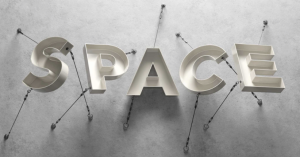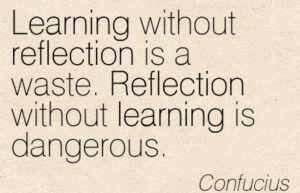
Twelve weeks ago I had no idea what a PLN was so, as you do, I googled! I came across this article on what a Personal Learning Network is and found it interesting but also daunting. I was being asked to set up my own PLN for the online unit of study I was doing and as I am a bit of a technology ‘dinosaur’, I went into a mild panic.
But look at me now!
I have completed The Six Learning Spaces assignment, added to my PLN.
I am just about to complete my Future Learning Space assignment, added to my PLN.
I have written regular blog posts to my PLN.
I have learnt so much about the design process of this site through trial and error but I have also been wonderfully supported by my online lecturer, Mr Adam Staples, my eCoP, in EDFD459, my colleagues, my friends and especially my family. Amazing what two tech-savvy children can do to help their Mama when she is stressed out and on the verge of tears!
As I was searching for an image to place at the top of this post, I found this wonderful one and I must admit, I smiled when I realised that all 10 reasons were now very applicable to me.
 Image retrieved from https://www.flickr.com/photos/sylviaduckworth/
Image retrieved from https://www.flickr.com/photos/sylviaduckworth/
I am very proud of what I have achieved this semester. I am connecting with wonderful educators all around the world and I am looking forward to continuing to blog so I can…
LEARN SHARE INSPIRE
PLN…tick!


 I am trying very hard to choose two out of six learning spaces for my assignment. Each space is important. Each space is interesting. Each space would work well within a refugee camp context. The spaces are all very much connected. How do I pick the right ones or the best ones? Are any of the spaces going to be more beneficial within the camp than another? They all have merit.
I am trying very hard to choose two out of six learning spaces for my assignment. Each space is important. Each space is interesting. Each space would work well within a refugee camp context. The spaces are all very much connected. How do I pick the right ones or the best ones? Are any of the spaces going to be more beneficial within the camp than another? They all have merit.




 I couldn’t agree more with Confucius on this one. As I near the end of my first unit towards upgrading my qualifications, I have been asked to post a reflection. I have likened the past 12 weeks as obtuse angle learning rather than a steep learning curve! But I must say, I am proud of my achievements to date.
I couldn’t agree more with Confucius on this one. As I near the end of my first unit towards upgrading my qualifications, I have been asked to post a reflection. I have likened the past 12 weeks as obtuse angle learning rather than a steep learning curve! But I must say, I am proud of my achievements to date. I was also very hesitant in getting involved in the online forums. In fact, my first reflection in Week One saw me write this on post it notes…
I was also very hesitant in getting involved in the online forums. In fact, my first reflection in Week One saw me write this on post it notes…

 Today, as I searched the www for inspiration, I ‘met’ a delightful young boy, four year old Muhammed Ali.
Today, as I searched the www for inspiration, I ‘met’ a delightful young boy, four year old Muhammed Ali.